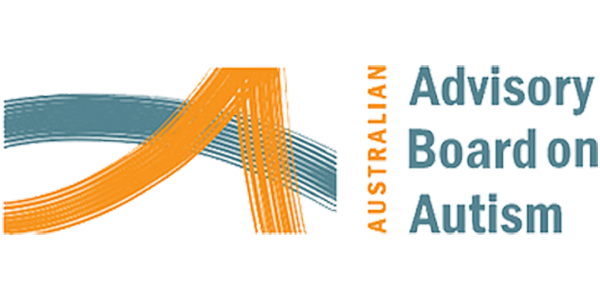Dr Jill Ashburner
Dr Jill Ashburner's career in the disability sector has spanned almost four decades, including a number of senior positions in education and disability-specific organisations. Her doctoral study explored sensory processing and classroom behavioural, emotional and educational outcomes of children on the autism spectrum.
Jill has been the Manager, Research and Development at Autism Queensland since 2007, where her research has focused on the education of students on the spectrum, sensory processing differences, practices and professional development needs of clinicians supporting people on the spectrum, the development and evaluation of goal setting tools, and the evaluation of services for adolescents and adults of the spectrum, and tele-practice.
Research Areas
Education of students on the autism spectrum:
- Overcoming the difficulties of students with ASD in written expression through the use of assistive technology and writing strategy instruction (Ozdowska, Ashburner, Wyeth, Carrington). In this project, the effectiveness of using assistive technology in combination with explicit writing strategy instruction to enhance the written expression of students on the spectrum in mainstream classrooms will be evaluated. The project commenced in October, 2014 and is ongoing.
- Use of Classroom Structure and Technology to Enhance Student Productivity and Transitioning Between Tasks (McDonald, Keen, Ashburner, Trembath, Costley, Haas). This project will evaluate the use of structured teaching principles (e.g., visual schedules and work systems) to improve the ability of students on the spectrum in mainstream schools to stay on task and transition between tasks. The project commenced in July, 2014 and is ongoing.
- Impact of improved classroom acoustics on the educational outcomes of students with ASD (Wilson, Ashburner, Harper-Hill). This study will examine the use of sound field amplification systems to exploring the impact of SFAs on listening and the comprehension of verbal instructions, attention-to-task, time taken to comply with common demands, and academic performance in students on the spectrum. The project commenced in February, 2016.
- The Introduction of Keyboarding to Children with Autism Spectrum Disorders with Handwriting Difficulties: A Help or a Hindrance? (Ashburner, Ziviani & Pennington, 2012). This study was completed and the results have been published: Ashburner, J., Ziviani, J. & Pennington, A. (2012). The introduction of keyboarding to students on the spectrum with handwriting difficulties: A Help or a hindrance? Australasian Journal of Special Education. 36, 32-61 doi:10.1017/jse.2012.6
- Auditory processing and classroom educational, behavioural and emotional outcomes in children with autism spectrum disorder (Ashburner, Wilson, Ziviani, Arnott, Sofronoff) This study is ongoing. The results are currently being analysed.
- Experiencing Bullying: Young People with Autism Spectrum Disorders and their Families (Saggers, Ashburner, Hwang, Campbell, Carrington, Mercer). This study is in collaboration with the Queensland University of Technology. A journal article is currently being prepared.
Jill Ashburner is contributing to a number of other Autism CRC research projects including:
- ASD Educational Needs Analysis: This project led by QUT researcher, Dr Beth Saggers, involved a nationwide online survey on the educational needs of students on the spctrum, completed by 248 educators, 179 specialists, 107 students with ASD and 934 parents.
- Early Years Behaviour Support Project: This study led by QUT researcher, Dr Beth Saggers will evaluate the application of tele-classroom consultation practices to support classroom teachers to meet the challenging and complex needs of students on the spectrum aged 5 to 8 years.
- Transition Models of Practice in Primary School and Secondary School: This study led by Aspect researcher, Dr Debra Costley, involves the evaluation of models of practice and related multimedia resource packages to support students on the spectrum in transitioning into primary school and secondary schools.
- How was your day?: This project lead by Associate Professor Lesley Stirling, from Melbourne University will explore the conversations that children on the spectrum have with their family about their school day.
Sensory processing issues of people with ASD
- Understanding the sensory experiences of young people with autism spectrum disorder: A preliminary investigation (Ashburner, Bennett, Rodger, & Ziviani, 2013). An article related to this study was published: Ashburner. J., Bennett, L., Rodger S., & Ziviani, J. (2013). The results of this study have been published: Understanding the sensory experiences of young people with autism spectrum disorder: A preliminary investigation. Australian Occupational Therapy Journal. 60(3), 171-180.doi: 10.1111/1440-1630.12025
- Sensory processing A Clinical Reasoning Framework (Ashburner, Rodger, Ziviani, & Hinder) – Systematic review of literature underpinning sensory interventions and development of a clinical reasoning framework. An article related to this study was published: Optimizing participation of children with autism spectrum disorder experiencing sensory challenges: A clinical reasoning framework. Canadian Journal of Occupational Therapy, 81(1):29-3. doi: 10.1177/0008417413520440
- The Development and Validation of a Sensory Processing Interview with Visual Cues (Ashburner, Rodger, Ong, Springfield). This study is currently ongoing. The Sensory Processing Interview, a tool with picture cues to enable young people on the spectrum to describe their sensory experiences was trialled in 2015 by occupational therapists (OTs), parents and children on the spectrum. A revised version of this tool: My Sensory Experiences has been designed to be administered at home by parents or family members, rather than OTs. An evaluation of My Sensory Experiences will be conducted in 2016.
Current practices and professional development of occupational therapists who provide support to people on the autism spectrum
- Occupational Therapy Services for People with Autism Spectrum Disorders: Current State of Play, Use of Evidence and Future Learning Priorities (Ashburner, J., Rodger S., Ziviani, J, & Jones, J. (2013). This study was completed and the results have been published: “Occupational therapy services for people with autism spectrum disorders: Current state of play, use of evidence and future learning priorities. Australian Occupational Therapy Journal, 61 (2), 110-120. doi: 10.1111/1440-1630.12083):”
- Ashburner, J., Rodger, S., Ziviani, J. Hinder, E., Cartmill, L. White, J., Vickerstaff, S. (2015). The results of this study have been published: “Improving transfer of learning: An innovative co-mentoring program to enhance workplace implementation following an occupational therapy course on autism spectrum disorders. Journal of Continuing Education in the Health Professions, 35 (4), 270-277.” This article explores the efficacy of using post-course co-mentoring to enhance workplace implementation of learning glowing professional development.
Service delivery to families of children on the autism spectrum in rural and remote areas
- The use of remote technologies to extend early intervention services for children with Autism Spectrum Disorders in rural locations (Ashburner, Vickerstaff, Beetge, Copley). This study was completed and the results of this study have been published: “Ashburner J., Vickerstaff, S., Beetge, J., & Copley, J. (2015). Remote versus face-to-face delivery of early intervention programs for children with autism spectrum disorders: Perceptions of rural families and service providers. Research in Autism Spectrum Disorders, 23, 1–14. http://dx.doi.org/10.1016/j.rasd.2015.11.011”
Programs to support adolescents and young adults with ASD
- Enhancing social, confidence and pre-vocational skills through the Studio G Multimedia Program for young adults (Ashburner, Bobir, Van Dooren) The Studio G program aims to facilitate their transition to education and vocational opportunities after leaving school. This project examined the impact of the Studio G program on: (a) social participation, (b) friendship networks, (c) mental well-being (d) quality of life and (e) the development of project skills and understanding of possible training and tertiary education options with the aim of facilitating access to tertiary education. The project was completed in 2015. An executive summary on the findings is available. A journal article on the project is currently being prepared.
RESEARCH GRANTS RECEIVED
2013- 2021 Cooperative Research Centre for Living with Autism
Core participants in the Autism CRC include Autism Queensland, the University of Queensland, Queensland University of Technology, Griffith University, Mater Medical Research Institute, AEIOU Foundation, Department of Education, Training and Employment Queensland, LaTrobe University, University of NSW, Curtin University, University of Western Australia and Autism Spectrum Australia (ASPECT). Dr. Jill Ashburner, Manager, Research and Development contributed significantly to the development of the bid for the Autism CRC. She took a lead role in developing Project 2.1: Enhancing Learning, Teaching and the Learning Experience including the following projects:
- Use of Classroom Structure and Technology to Enhance Student Productivity and Transitioning Between Tasks ($164,684)
- Overcoming the difficulties of students with ASD in written expression through the use of assistive technology and writing strategy instruction ($176,680)
- Enhancing social, confidence and pre-vocational skills through the Studio G Multimedia Program for young adults ($50,000)
- Impact of improved classroom acoustics on the educational outcomes of students with ASD ($348,480)
2012-2013 National Disability Insurance Scheme Practical Design Fund: The use of remote technologies to extend early intervention services for children with ASD in rural locations. Ashburner, J. ($62,510)
2010-2012 The Trust Company Woodend Foundation, Experiencing Bullying: Young People with Autism Spectrum Disorders and their Families. Saggers, B., Ashburner, J., Hwang, Y., Campbell, M., Carrington, S., Mercer, L. ($20,304)
2010-2011 Occupational Therapist Board of Queensland, Developing an Integrated Professional Development Program: Evidence-based Occupational Therapy for People with Autism Spectrum Disorders. Ashburner, J., Rodger, S., Ziviani, J. ($20,000)
2009-2010 Occupational Therapist Board of Queensland, Current Practices, Training and Professional Development Needs of Occupational Therapists who Provide Services to People with Autism Spectrum Disorders in Queensland. Ashburner, J., Rodger, S., Ziviani, J. ($14,809)
2008-2010 The Trust Company Fred P. Archer Bequest: Auditory processing and classroom educational, behavioural and emotional outcomes in children with autism spectrum disorder. Ashburner, J., Wilson, W., Ziviani, J., Arnott, W., Sofronoff, K. ($19,800)
2008-2009 Apex Foundation Trust Research Grant for the study: Introduction to Keyboarding for Students with Autism Spectrum Disorder: A Help or a Hindrance. Ashburner, J. ($7,000)


